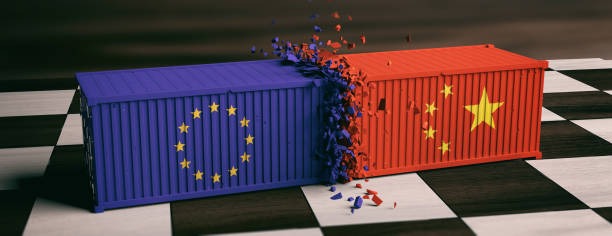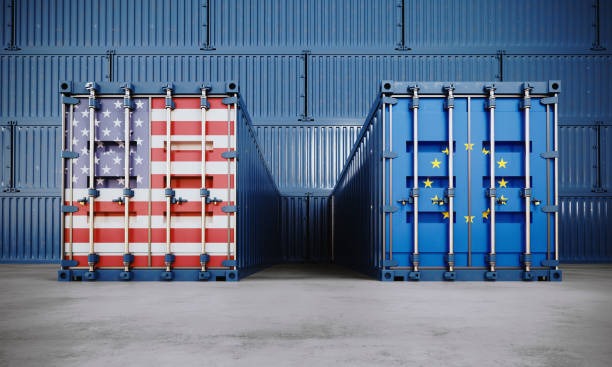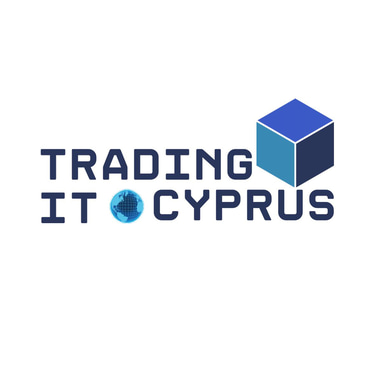EU Imports vs. Non-EU Imports for IT Goods in Cyprus: Tariff & VAT Differences
IT TRADING
11/13/20255 min read


EU Imports vs. Non-EU Imports for IT Goods in Cyprus
Information technology products, trade has gained significant role as a component of Cyprus economy. As the digital devices become mandatory by businesses and consumers, the decision on whether or not to purchase within the EU or outside EU may influence the cost and compliance as well as speed of delivery. Understanding EU Imports vs. Non-EU Imports for IT Goods in Cyprus is essential for importers who want to save money and follow all rules. The two types are subjected to various tariff charges, VAT and customs.
The Dynamic Cyprus IT market.
Cyprus is emerging as a center of technological products in the Eastern Mediterranean. The orders and demands on laptops, tablets, servers and accessories continue to increase. Most local firms rely on the imported devices to remain competitive. That’s why knowing how EU Imports vs. Non-EU Imports for IT Goods in Cyprus work is more than a legal concern—it’s a way to protect profit margins and reduce operational risks.
What is so Special about EU Imports?
In case of importation of IT goods in a different EU country, it is not very complicated. No custom duties are paid as Cyprus is under the European Union. Goods are free in the movement within member states based on the Single Market provisions. To business people, this will be reduced shipping speed, less documentation and no importation tariffs. VAT payables in Cyprus are implemented as per national regulations yet in most occasions, these payables can be reimbursed by registered firms. In short, EU Imports vs. Non-EU Imports for IT Goods in Cyprus favor EU partners for smoother trade.
Non-EU Imports: Understanding.
However, there is an increased number of steps involved in importation into the non-EU countries such as China, USA or Japan. The customs clearance is obligatory, and the tariffs can be used, based on the character of the product that is IT. The VAT is also to be paid by importers. Non-EU producers can usually propose cheaper base prices, but such other factors can minimize the profits. Nonetheless, the non-EU imports into a Cypriot business are high due to a higher variety and direct deals with factories.
Differences in Tariffs Explained.
Tariffs are one of the biggest distinctions between EU Imports vs. Non-EU Imports for IT Goods in Cyprus. EU imports attract no duty and non-EU goods imports face custom duties according to the EU policies. Tariff rate will be determined by the specific product in terms of Harmonized System (HS). As an illustration, computer accessories could be zero/low tariff and some communication devices may be charged high. Before making large orders, importers must always consult the EU TARIC database to determine the approximate landed cost.
VAT Regulations of IT Good in Cyprus.
VAT is another key factor. On EU imports, the standard rate of VAT is 19 which is payable in Cyprus though business entities have the opportunity to claim it provided they are VAT registered. In the case of non- EU imports the VAT is paid at the arrival and should be cleared before the release of goods. This has an implication on the cash flow as the importer makes payments earlier and is able to recover them afterwards. EU Imports vs. Non-EU Imports for IT Goods in Cyprus therefore differ not just in tariffs but also in timing and paperwork for VAT recovery.
Documentation and Procedures of customs.
In case of EU imports, there is a straight forward process. An invoice and a transport document is normally sufficient. The customs declaration, commercial invoice, and packing list, the certificate of origin and, perhaps, a conformity assessment, on the other hand, must also accompany the imports of non-EU products.
Shipping and Logistics Issues.
Logistically, the goods in EU countries tend to take shorter durations. Regular sea and air routes to the major EU hubs such as Germany, Italy and Netherlands link Cyprus. EU Imports vs. Non-EU Imports for IT Goods in Cyprus differ in transit times; in addition, non-EU shipments often take longer due to customs checks. Nevertheless, the airfreight services across Asia may also work when the product is of high value or urgency.
Standards of Quality and Compliance.
All incoming IT products should comply with EU safety and environmental requirements, i.e. CE marking, RoHS compliance. When comparing EU Imports vs. Non-EU Imports for IT Goods in Cyprus, EU products already comply by default, while non-EU items may require extra verification or testing. Before sale is done to an importer, there should always be examination of product documentation to keep off legal or warranty problems.
Currency Exchange and Payment Risk.
Currency is another variable that determines trade. EU imports are normally based on euros payment. The imports done by non-EU may use US dollars or any other currency, and this entails exchange rate risk. This difference can impact overall cost stability when evaluating EU Imports vs. Non-EU Imports for IT Goods in Cyprus. In a variety of businesses such as forward contracts, the use of fixed-price agreements minimizes this risk.
The Trends in Markets and Purchases.
A combination of both is common among the Cypriot importers. Suppliers within EU are reliable and provide swift services whereas alternative suppliers such as China and Korea are based in non-EU regions and hence cheap. A balance is based on the needs of the business. In other words, retailers of IT products may select distributors in EU to purchase branded laptops and purchase non-EU factories to acquire peripherals at reduced costs.
Common Mistakes to Avoid
New importers occasionally fail to incorporate the shipping and the custom expenses in their budgets. Other people do not appreciate time required in clearance. Abuse of wrong tariff code in misclassifying goods may attract penalties. When analyzing EU Imports vs. Non-EU Imports for IT Goods in Cyprus, always plan carefully and consult trade professionals to avoid surprises.
The Future and Ethical Trade.
Sustainable sourcing has become a major concern to more companies. The EU suppliers tend to have a better traceability tool, whilst non-EU manufacturers are also rising rapidly in the field of eco-production. Being connected with ethical partners is a positive move towards credibility within the E-E-A-T framework and consumers trust. EU Imports vs. Non-EU Imports for IT Goods in Cyprus should be seen not only from a financial angle but also from a responsibility perspective.


Conclusion
Understanding EU Imports vs. Non-EU Imports for IT Goods in Cyprus is essential for anyone involved in trade or retail. The benefits that come with EU imports are simplicity, expediency and low paper work load. The imports not of the EU offer flexibility, variety, and possible savings in costs. Nevertheless, importers should execute timely management of customs duties, VAT timing and compliance in order to avoid losses. The correct plan is generally to use these two sources as a push-pull depending on the necessity.
FAQs
Are the EU all-duty-free in the IT goods in Cyprus?
Yes. Cyprus being an EU member, all goods imported into the country are duty-free as long as it is imported into the EU but it has to pay the local VAT.
Will the non-EU imports be able to be made cheaper than the EU imports?
Sometimes. Although tariffs and VAT increases costs, non-EU manufacturers may offset prices due to reduced costs in production and this depends on the type of product and the amount of orders.
Contact
EVERNEED AI LTD
Limassol Office
Victory House, Arch. Makarios III Avenue 205, Limassol, 3030
Nicosia Office
Digenis Ave 81-83 Grivas 1st, 5th Floors, Nicosia, 1090
Hong Kong Office
SUITE C, LEVEL 7
WORLD TRUST TOWER
50 STANLEY STREET
CENTRAL HONG KONG
Connect
info@tradingitcyprus.com
+357 96166570
© 2026. Trading IT Cyprus All rights reserved.
Powered by Skyrocket Marketers Agency
